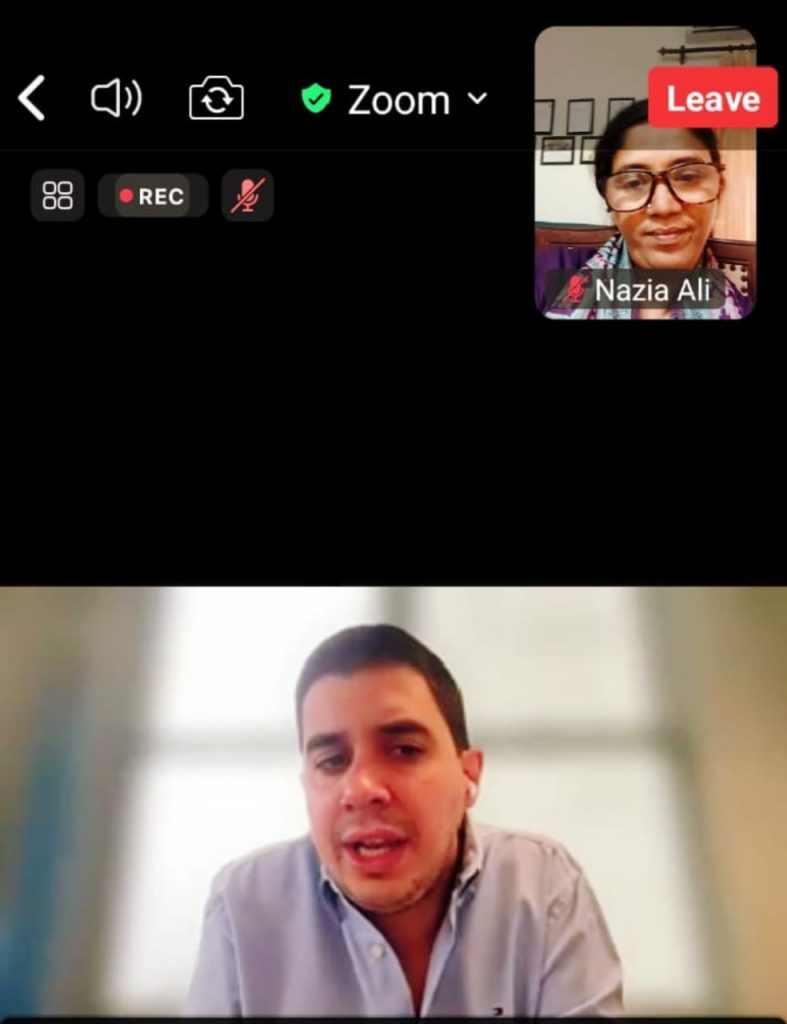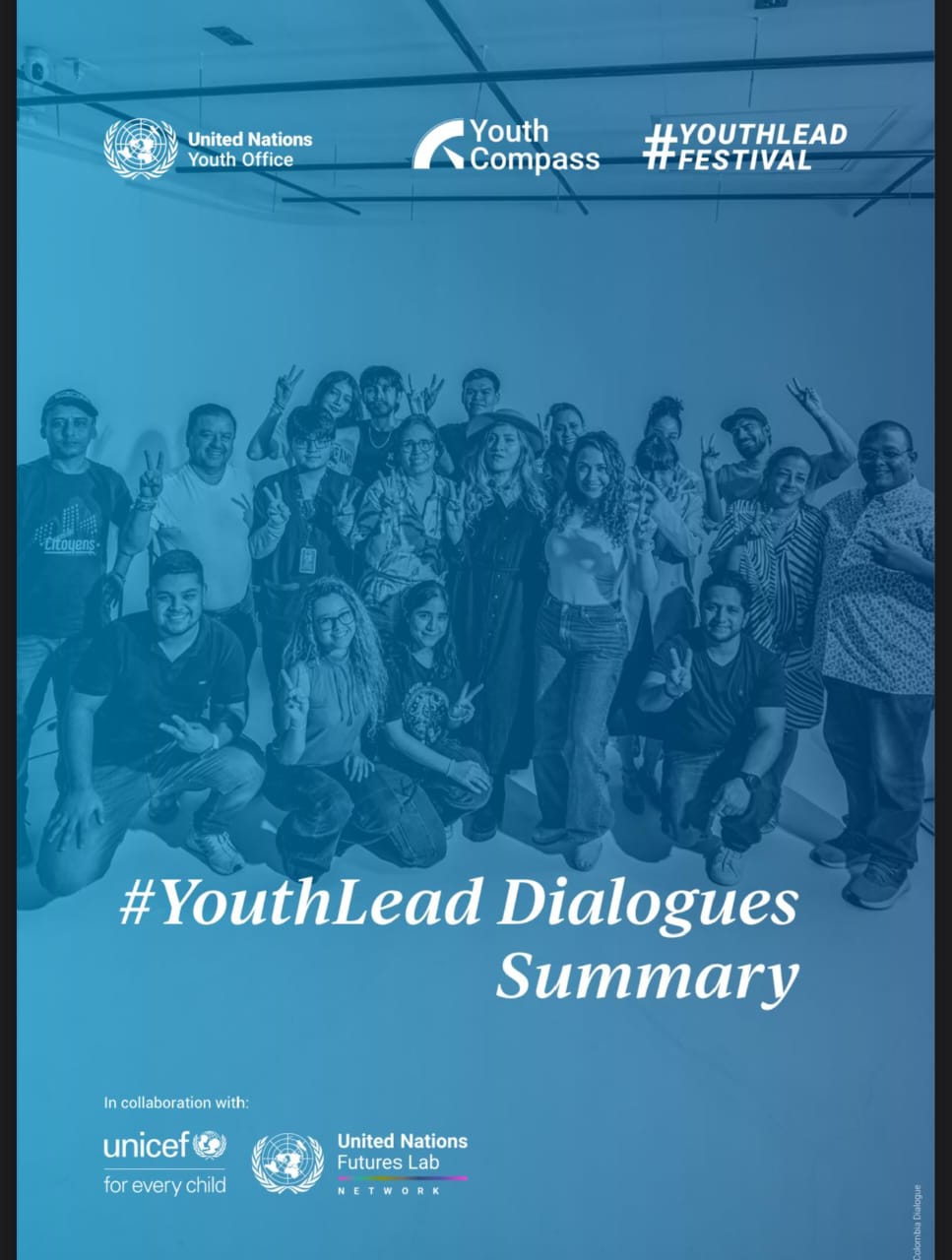(Publish from Houston Texas USA)
(By:Nazia Naz: defender & international researcher & human Rights)
The Youth Lead Dialogues Summary, produced by the United Nations Youth Office in collaboration with UNICEF, Youth Compass, and the United Nations Futures Lab Network, stands as a powerful testament to the growing influence of young people in shaping global priorities. Far more than an advocacy document, it reflects a new era of multilateralism, one where youth are not passive beneficiaries but active architects of the world they wish to inherit. This publication synthesizes the insights, aspirations, and concerns voiced by young individuals from around the world, many of whom joined virtual discussions and dialogues to create a shared vision for a more just and sustainable future.

As a Pakistani youth representative, “I had the Honor of joining these global conversations through the virtual sessions held on Zoom. My participation allowed me not only to observe the evolving global discourse on youth empowerment but also to share voices from Pakistan, a country with one of the world’s largest youth populations. Representing Pakistan on such an important international platform is both a privilege and a responsibility, for it carries with it the duty to highlight the issues Pakistani youth face, as well as their potential, resilience, and determination to contribute to global progress. My engagement reaffirmed that young people in Pakistan are deeply conscious of global developments and passionate about shaping solutions that address both national and international challenges”.
The Youth Lead Dialogues Summary emerges at a time when the world is preparing to mark the thirtieth anniversary of the World Programme of Action for Youth in 2025. This milestone highlights the United Nations’ enduring commitment to positioning young people at the heart of global development. The publication makes it clear that youth engagement is no longer a symbolic gesture; it is now an essential element of global policy-making. Young people bring authenticity, lived experience, and innovative thinking to discussions that have traditionally been dominated by older leadership. This initiative, therefore, represents an important shift in the way global institutions understand and respect youth contributions.
For Pakistan, involvement in this global youth movement is particularly important. With a population where more than 60 percent of citizens are under the age of 30, Pakistan stands at a unique crossroads. If properly engaged, empowered, and supported, the country’s youth could become a tremendous force for national development, democratic progress, and socioeconomic transformation. My participation in these dialogues offered an opportunity to highlight pressing issues in Pakistan, such as the rising concerns about human rights violations, the increasing number of out-of-school children, gender disparities, unemployment, the impacts of climate change, and the constant struggle for equitable opportunities. The platform allowed me to demonstrate that Pakistani youth are not detached from global realities; rather, they are deeply aware of international commitments like the SDGs, human rights conventions, and the global agenda for peace and stability.
The Youth Lead Dialogues Summary, as well as other Youth Lead publications, deserve appreciation for the depth and clarity with which they present youth-driven perspectives. These books capture the voices of young changemakers, activists, researchers, and community leaders from different corners of the world. They reveal a shared determination to challenge inequalities, demand accountability create spaces where youth leadership can thrive. The narratives contained in these publications offer hope and inspiration, proving that age is not a barrier to impact. They also act as a valuable resource for policymakers who seek to understand how young people perceive global challenges and what they need to take meaningful action.
One of the most remarkable aspects of this initiative is the emphasis on digital inclusion. The use of Zoom meetings to engage youth from across continents reflects the UN’s understanding that modern youth leadership is decentralized, digital-first, and grounded in collaborative learning. The virtual dialogues I attended brought together participants from Asia, Africa, Europe, and the Americas, each contributing their local realities to a shared global conversation. These interactions demonstrated that young people everywhere, regardless of geographical or economic differences, share a common desire for justice, peace, dignity, and opportunity. They are willing to work across borders to create solutions that benefit humanity as a whole.
The publication also highlights an important shift in global thinking: multilateralism is no longer confined to powerful institutions or high-level meetings. It happens in community groups, youth alliances, online platforms, and collaborative networks. Young people today are actively reshaping what global cooperation looks like. They do this not through traditional hierarchies but through horizontal leadership, intersectional understanding, and evidence-based advocacy. The Youth Lead Dialogues Summary captures these dynamics beautifully, showing the world that the future of multilateralism depends on the full participation of youth.
For Pakistan, this initiative carries deep relevance. The country’s challenges, from climate disasters to governance issues, from gender inequalities to economic instability, cannot be solved without the voices of young people. The Youth Lead platform offers Pakistani youth the opportunity to learn from global peers, share their experiences, and contribute solutions that are grounded in local realities. It also helps to cultivate international solidarity, giving Pakistani youth the encouragement and confidence they need to step into leadership roles both at home and abroad.
The Youth Lead Dialogues Summary ultimately reminds us that young people are not waiting for permission to lead; they are already leading. They are raising their voices, organizing movements, launching innovations, and demanding a more inclusive world. The UN’s commitment to amplifying these voices through initiatives like Youth Lead is not only commendable but essential for creating a future where all young people can thrive. As someone who has been part of these discussions, I am proud to represent Pakistan and contribute to a global dialogue that recognizes youth as partners in progress. These publications, including the Youth Lead Dialogues Summary, reflect a powerful collective commitment: that youth are not just the future, they are the present force of change shaping the world today.


